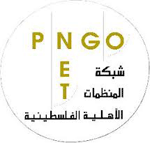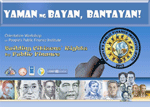Published on Thu, 2013-11-07 11:31
The latest report by the UN Special Rapporteur on Right to Water and Sanitation (“the Rapporteur”), Ms. Catarina de Albuquerque, focuses on the theme Sustainability and non-retrogression in the realization of the rights to water and sanitation. The report offers useful and welcome guidance for those seeking to draw meaning from the human right to water on the areas of finance, investment and other related economic ones. Some of its developments will arguably be useful beyond the right to water, charting a path for how to draw such meaning in the case of other rights. The Special Rapporteur devotes a portion of her report to develop the concept that sustainability is “non-dissociable” from human rights law. |
Published on Thu, 2013-11-07 11:06
The Palestinian Non-governmental Organizations Network PNGO raised concerns and warned of a dangerous deterioration in the humanitarian situation in the Gaza Strip due to severe drop-long power cuts caused by the fuel outage. PNGO stated that power outage in the besieged Gaza Strip seriously affects basic life facilities in particular health , water, education and sanitation as well as vital sectors. |
Published on Thu, 2013-10-31 13:05
Social Watch Philippines (SWP), Silliman University in Negros Oriental and Mindanao State University (MSU) in the Autonomous Region of Muslim Mindanao (ARMM) launched the People’s Public Finance Institute (PPFI), which is the first-ever center on teaching citizens to learn and be actively involved in public finance in the Philippines. “As part of Social Watch Philippines’ commitment to asserting social development for people’s rights and empowerment, we are setting up PPFI centers in various State Colleges and Universities (SUCs) all over the country,” said former national treasurer and SWP lead convenor Leonor Magtolis Briones.“Through the Institute, SWP and SUCs will educate the general public, civil society organizations (CSOs) and interested local government officials on national and local public finance working under the framework of citizens’ participation,” she added. |
Published on Mon, 2013-10-28 11:56
In the early morning of October 3 a tourist was enjoying the beautiful quiet beach of the Italian Mediterranean Island when three swimmers appeared. Three African young men frantically asked for help. They had left their mothers behind in a ship on sea that was on fire. The ship had made the crossing that night and had reached the 800 perimeter of Lampedusa with over 500 passengers on board. While waiting to be able to offload the passengers, the ship was pushed away from the shore. When the captain tried to start the engine to bring his ship back into the perimeter, it didn’t work. He then decided to seek attention to get help by making a basket-fire. He burnt himself and threw the burning rod in the boat, rather than in the sea. The passengers on the boat panicked and rushed to one side. Inside the boat, in the cabins, women and children were asleep. Locked in the cabins, they would not survive the journey. Only six women made it alive. |
Published on Mon, 2013-10-28 11:26
The 68th session of the United Nations General Assembly (UNGA) ended with renewed commitment to anti-poverty targets and agreement to adopt new development goals in 2015. Women's rights advocates, along with diverse civil society organizations, critically engaged in debates calling for structural transformation that puts human rights and sustainability at the centre of the new development agenda. The 68th session of the UN GA that took place in New York 23-27 September 2013 was the first international inter-governmental process related to the Post 2015 Development Agenda and was intended to set out the formal process for governments to be involved in negotiations around the new development agenda, which have to date been led by the United Nations. |








